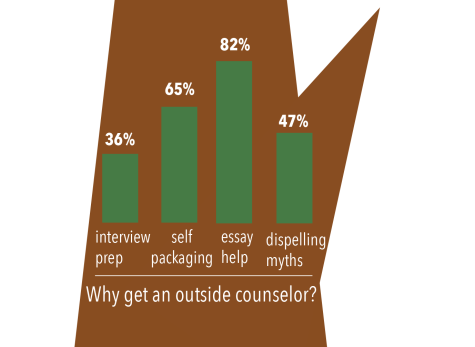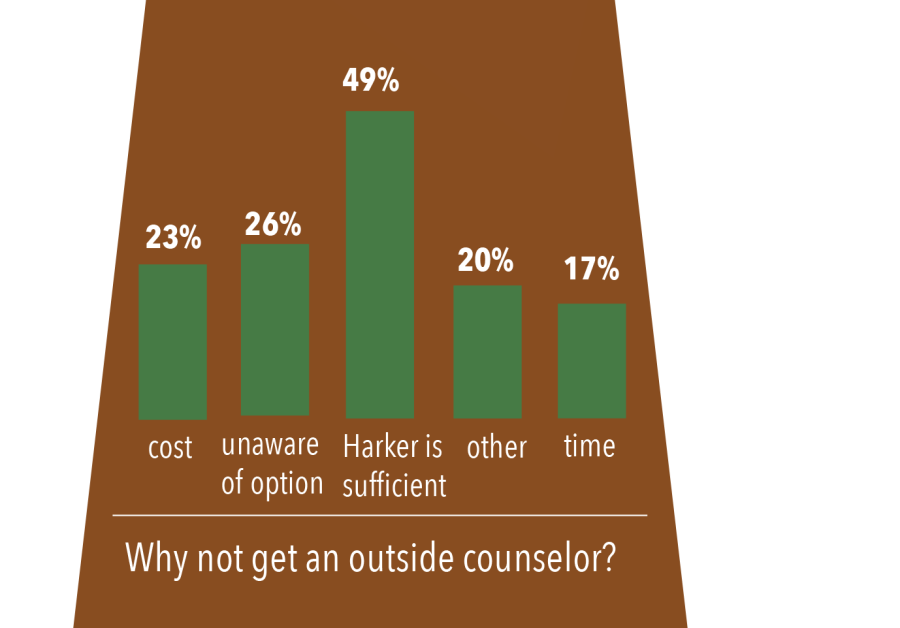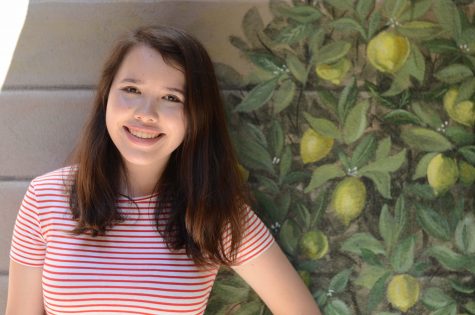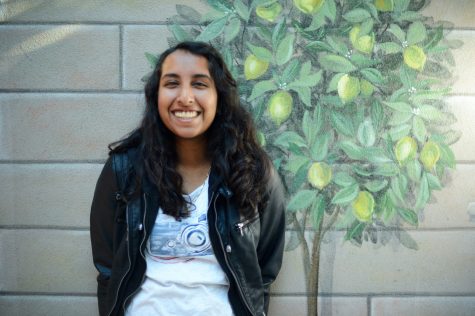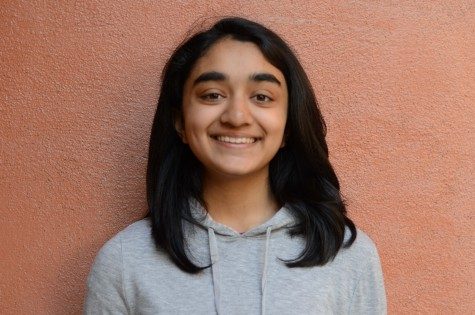Branching out: Students seek independent college counseling services
November 29, 2015
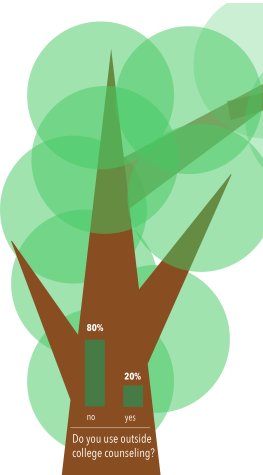 Twenty-six percent of college applicants used an independent college counselor in 2013, three times as many as from 10 years prior.
Twenty-six percent of college applicants used an independent college counselor in 2013, three times as many as from 10 years prior.
The upper school is no exception to this rising trend. In addition to the four college counselors provided as part of the college counseling program, 20 percent of surveyed seniors chose to consult outside-of-school counselors.
For many students, personal availability is a primary benefit of outside-of-school counseling. The current senior class has 187 members, meaning that each of the four college counselors consults with 40 to 50 seniors.
“Personally, I feel like my Harker counselor does a better job [and] is more well-knowledged than the outside counselor, but at the same time, the outside counselor, he only has five or six people he needs to take care of,” Anthony Luo (12) said. “It wasn’t really my reason, because my parents forced me to get an outside counselor.”
Others, like Leeza Kuo (‘15), personally elected to seek outside help for their essays.
“I wanted my essays to be perfect, and my outside-of-school counselor gave me a community where I could work, or help me come up with ideas,” she said.
Reasoning varies for those who choose not to use an outside college counselor. Some, like Omar Hamade (12), find the counseling provided by Harker sufficient.
“I really like my college counselor, Mr. Lum Lung,” Omar said. “He gives me the advice I need and he helps me whenever I need, so I didn’t really find the need to go outside and look for somebody else.”
Harker counseling spans from the beginning of the second semester of junior year to the end of the first semester of senior year. School counselors review essays, provide general classes and meet individually with students to give advice and discuss strategy.
Although college counselors are aware that some students seek outside college counseling, college counselor Martin Walsh said that the knowledge does not materially affect his actions and advice.
“I don’t ask. I don’t really care. The way I approach [college counseling] is like there’s a door, here I am, I was dean at Stanford, I’m pretty sure the outside counselors weren’t that,” Walsh said. “It’s just a service, and if they want to use the service, it’s here.”
But counselors recommend caution in seeking outside help due to the varying qualifications of potential outside counselors.
“Anyone could say ‘I’m a college counselor’; you don’t really have to have any credentials or degrees,” college counselor Nicole Burrel said. “So the quality varies, and the background and training varies.”
“I mean, everyone in this office has worked at a university in, you know, pretty high-up levels in pretty selective universities,” Walsh said. “I think I worked with a student one time where the outside counselor had him planting trees in Mongolia. I have no idea what that had to do with getting admissions into college.”
Another main consideration for students utilizing outside college counseling is cost. Harker’s counseling services are included as part of the tuition, but outside college counseling can range in price. Ivy Advisors offers $300-per-hour counseling and “comprehensive package deals” for applications, charging $4600 for help with the first school and descending to $1000 for the sixth school and beyond. They also provide a-la-carte services, including application strategy, essay review, mock-interview, recommendation -letter strategy and resume editing, with costs ranging from $500 to $1200.
“We already have college counselors,” Melody Weber (12) said. “If I need someone to help me with my essays, I already have someone to do that for me, so I’m not sure if I want to spend another $5,000 on something I already have.”
According to a college counselor from Ivy Max, a college preparation company with a Cupertino office that has customers from Harker and other local schools, Ivy Max provides services not available through school.
“We not only help them for academically, we help them in all different ways, like maturity and their independence and their leadership skills,” she said. “Not like school where they only focus academically.”
Along with college counseling and SAT classes, Ivy Max sets up clubs for its students to run and organizes overseas trips to do community service in foreign countries. Its VIP service, a comprehensive four-year program, costs between $30,000 and $40,000.
“Last year, we had a lot Harvard, Stanford, Princeton, good schools,” the Ivy Max counselor said. “The parents were very happy.”
Outside college counseling is also prevalent in schools with less extensive or nonexistent college-counseling programs. Saratoga High School, a free public school, provides four counselors split among roughly 1600 high school students.
“[My school counselor] can’t give me that personal attention, so that’s what an outside-of-school college counselor is for,” Saratoga junior Nidhi Jain said. “[My college counselors] are constant about checking up on me like once a month, twice a month, making sure that you’re on the right track.”
Nidhi said that, while college counseling was beneficial for her, whether students use counselors should depend on their individual financial situations.
“Personally, I think that my [outside] college counselor has been extremely helpful and useful, but I know that for a lot of people who are struggling with money, it’s a really big deal to get a college counselor,” she said. “I don’t think it’s totally worth it to put aside a big chunk of your funds for a college counselor for senior year if you are in that kind of position.”
Anthony shared similar sentiments.
“[With] college counseling, there’s only so much it helps,” Anthony said. “There are the super ridiculous $30,000 programs, which obviously aren’t worth its cost. If it’s like $100 so that some random guy looks over all of your essays, the benefit outweighs the cost there.”


















![“[Building nerf blasters] became this outlet of creativity for me that hasn't been matched by anything else. The process [of] making a build complete to your desire is such a painstakingly difficult process, but I've had to learn from [the skills needed from] soldering to proper painting. There's so many different options for everything, if you think about it, it exists. The best part is [that] if it doesn't exist, you can build it yourself," Ishaan Parate said.](https://harkeraquila.com/wp-content/uploads/2022/08/DSC_8149-900x604.jpg)




![“When I came into high school, I was ready to be a follower. But DECA was a game changer for me. It helped me overcome my fear of public speaking, and it's played such a major role in who I've become today. To be able to successfully lead a chapter of 150 students, an officer team and be one of the upperclassmen I once really admired is something I'm [really] proud of,” Anvitha Tummala ('21) said.](https://harkeraquila.com/wp-content/uploads/2021/07/Screen-Shot-2021-07-25-at-9.50.05-AM-900x594.png)







![“I think getting up in the morning and having a sense of purpose [is exciting]. I think without a certain amount of drive, life is kind of obsolete and mundane, and I think having that every single day is what makes each day unique and kind of makes life exciting,” Neymika Jain (12) said.](https://harkeraquila.com/wp-content/uploads/2017/06/Screen-Shot-2017-06-03-at-4.54.16-PM.png)








![“My slogan is ‘slow feet, don’t eat, and I’m hungry.’ You need to run fast to get where you are–you aren't going to get those championships if you aren't fast,” Angel Cervantes (12) said. “I want to do well in school on my tests and in track and win championships for my team. I live by that, [and] I can do that anywhere: in the classroom or on the field.”](https://harkeraquila.com/wp-content/uploads/2018/06/DSC5146-900x601.jpg)
![“[Volleyball has] taught me how to fall correctly, and another thing it taught is that you don’t have to be the best at something to be good at it. If you just hit the ball in a smart way, then it still scores points and you’re good at it. You could be a background player and still make a much bigger impact on the team than you would think,” Anya Gert (’20) said.](https://harkeraquila.com/wp-content/uploads/2020/06/AnnaGert_JinTuan_HoHPhotoEdited-600x900.jpeg)

![“I'm not nearly there yet, but [my confidence has] definitely been getting better since I was pretty shy and timid coming into Harker my freshman year. I know that there's a lot of people that are really confident in what they do, and I really admire them. Everyone's so driven and that has really pushed me to kind of try to find my own place in high school and be more confident,” Alyssa Huang (’20) said.](https://harkeraquila.com/wp-content/uploads/2020/06/AlyssaHuang_EmilyChen_HoHPhoto-900x749.jpeg)



